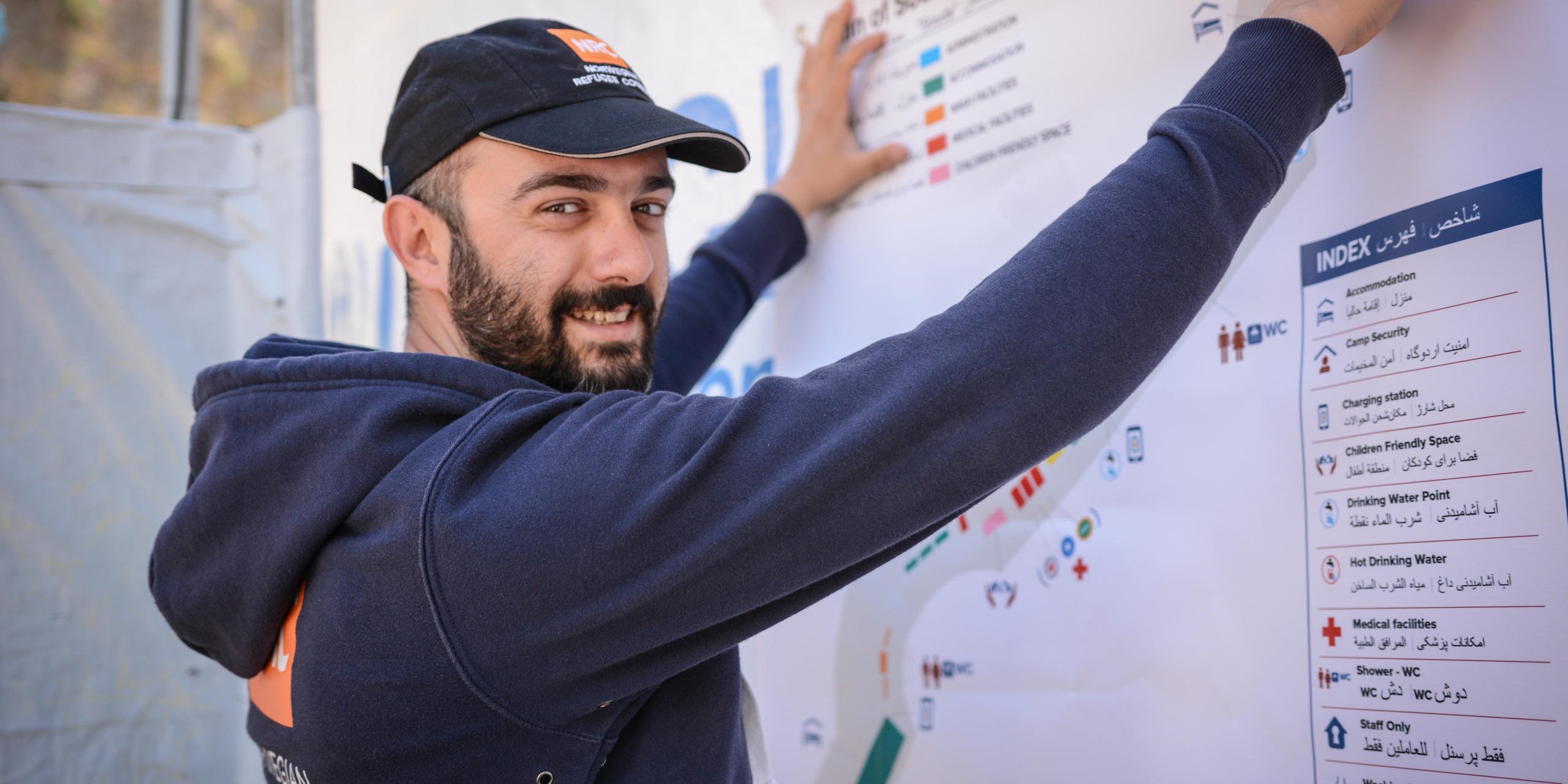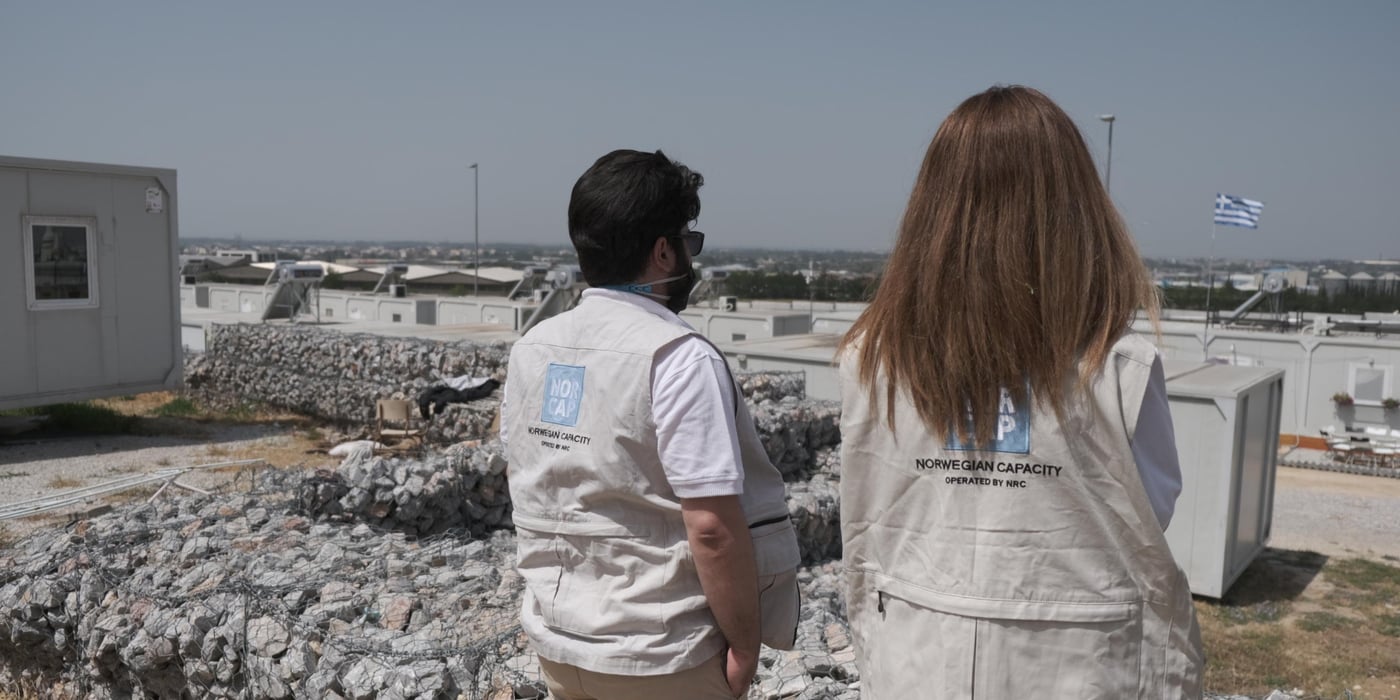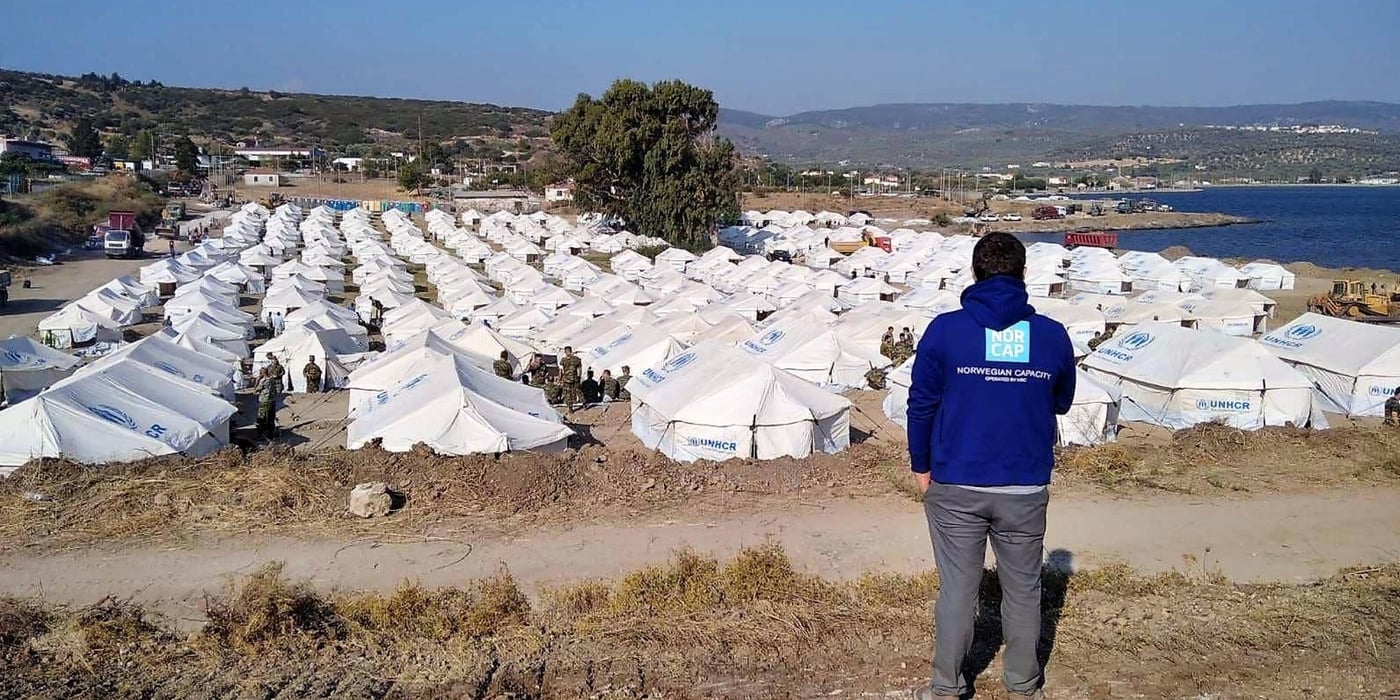
In 2015, nearly a million people crossed from the Turkish coast to the Greek islands to seek international protection in Europe. Most were escaping the Syrian civil war, although many were also from Afghanistan, Iraq and other countries. In September 2015, it was estimated that 5,000 refugees were arriving per day on the islands, overwhelming the capacity of the Greek authorities, residents and humanitarian groups to aid the refugees with food, shelter and clothing.
In late summer 2015, the Norwegian Refugee Council began operations to alleviate the plight of these thousands of people arriving exhausted, frightened and distressed by the crossing from the Turkish coast. Since then, the situation in Greece has changed: Greece is no longer a transit country for new arrivals or for refugees already in the country, but a country in which many will be staying for at least some months.
“In 2015, Greece was struggling to cope with such a massive influx of people in need. For most refugees making it to Greece, the country was a stepping stone to another European country,” said Country Director Shaun Scales. “But since then, much has changed – the number of arrivals has decreased and for many refugees in the country, Greece represents a new home.”
This month marks the second year the EU-Turkey statement has been in place, an agreement that has sparked concern that it aims to deter refugees from seeking international protection in Europe. Combined with countries north of Greece sealing their borders, the numbers of new arrivals have fallen – in 2017, 29,700 made the crossing, a significant drop compared with 173,450 in 2016, most of them in the months before the statement was agreed.
Lessons Learned
NRC’s operations focused on two regions: the island of Chios, one of the frontier islands receiving thousands of refugees; and, later, in northern Greece, where thousands of refugees were trapped by the border closures to the north.
Chios
In the first three months of operation on the island of Chios, NRC supported 35,000 people in open reception and identification facilities and in informal settlements, providing food, shelter, education, camp management and WASH services.
The Greek refugee crisis was notable for the range of nationalities that fled to Greece – as many as 33 – and the subsequent impact this had on humanitarian work which had to deal with a range of languages and customs in providing support.
At the outset, the rapid and unprecedented influx of refugees required coordination. NRC took the lead in coordinating partners on Chios. Through a Whatsapp group, organisations (12 to begin with) coordinated their activities and the information they were receiving. This simple platform ensured efforts weren’t duplicated and coordination was more seamless.
The advent of the March 2016 statement meant that those arriving after March 20 would be restricted to the islands until they were formally recognized as asylum seekers. The process can take months, which meant the needs of the new arrivals were different to the refugees who had crossed into Greece and then moved onto the mainland.
In Chios, NRC supplied about 3,000 hot meals a day to refugees in the informal Souda site, as well as supplementary food portions in Vial. With Swiss NGO Be Aware and Share, NRC provided non-formal education to more than 300 children and youth held on the island. A community centre, Agora, was established to provide resources and information and be a forum for closer ties with local residents.
Activities on Chios ended formally on 31 July, 2017 when funding from the European Commission Civil Protection and Humanitarian Aid Organization (ECHO) ceased and funds for services to asylum seekers on the island were transferred to the Greek authorities.
Thessaloniki, northern Greece
The border closures in the western Balkans in February 2016 left tens of thousands of refugees stranded on the Greek mainland. In May 2016, the Greek government dismantled the Idomeni camp – which numbered as many as 14,000 people (twice the number as in the infamous Calais camp)-- and relocated individuals to temporary sites, many managed by the Greek Army.
NRC focused on bringing these temporary sites up to the minimum safety and dignity standards and supported the authorities in the management and upgrade of five refugee camps. In late 2016, with funding from ECHO, NRC began moving vulnerable individuals and groups in camps to urban accommodation and providing follow-up support to promote integration into Greek society. After the closure of emergency camps, NRC also offered shelter to homeless refugees who failed to get registered in governmental sites. At its peak, the urban accommodation programme housed 979 beneficiaries in 332 apartments in northern Greece.
That was complemented by non-formal education to facilitate school integration for children. In the camps in and around Thessaloniki, NRC provided classes that targeted around 600 children between 7 and 15 years of age in English, Greek, Arabic, maths and science in coordination with the Greek ministry of education. NRC also targeted youth aged 15 upwards, with IT, Greek and English classes, in the absence of accessible formal education opportunities.
Decision to Leave
Over time, the EU began to redirect funds previously provided to INGOs such as NRC to the Greek authorities, on the premise that their capacity and ability to feed, house and protect individuals seeking international protection has improved.
While the conditions on the islands continues to be critical, the situation on the mainland is now more focused on longer term ‘integration’ support, an area in which NRC has contributed significantly over the past two years
This means that ECHO will gradually reduce funding for operations on the mainland in the course of 2018. Without secured funding, NRC’s primary objective is to ensure longer-term support and protection for vulnerable beneficiaries in this post-emergency phase. There are about 50,000 refugees still in Greece with the majority having sought asylum in the country.
NRC’s camp-based activities in two mainland sites, Alexandreia and Veria, will continue under the management of the Danish Refugee Council. UNHCR and partners will continue to support NRC’s urban accommodation beneficiaries and education activities in another camp, Serres, will continue with support from UNICEF.
NRC’s three information centres will continue providing information, support and educational activities until 31 March and will be adopted by other organisations who will continue to offer similar support services from 1 April.
Recommendations
Living conditions on the islands remain inadequate, particularly for vulnerable groups, since the processes required to determine the asylum/return process can take months.
As Greece is a country struggling through a protracted financial crisis, external funding will be imperative. While Greece has a tradition of receiving refugees due to its location, it has little experience or policy on integrating refugees and migrants into its society and assistance will be required to avoid tension with the host community. Language proficiency, particularly in Arabic, was a challenge during operations and will remain a challenge.
“The Greek refugee crisis exposed divisions within Europe in relation to the issues of displacement, asylum and migration,” said Scales. “Now, in an environment of reduced arrivals to the Greek islands, we still see unnecessarily slow asylum procedures resulting in extended containment in unacceptable living conditions. The EU must collectively develop its will to ensure people in need receive the protection they are entitled to under international law. “
Emergency funding for NRC’s Greece operations was made available through EER1, NRC own funds, EEA, ERR2 and European Commission Civil Protection and Humanitarian Aid Organization (ECHO).




